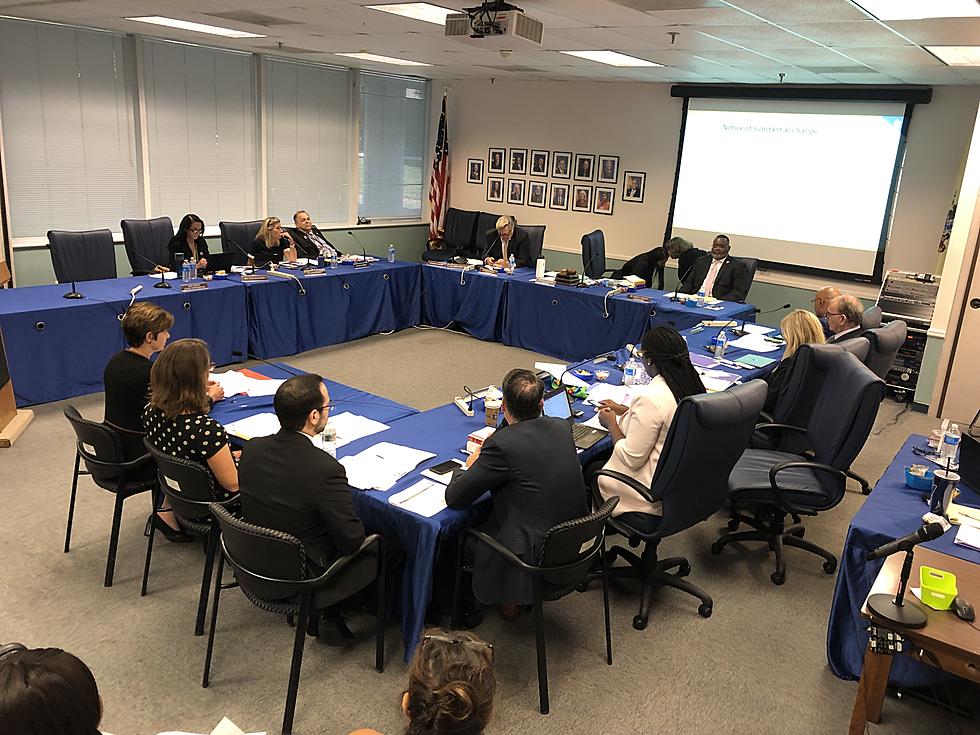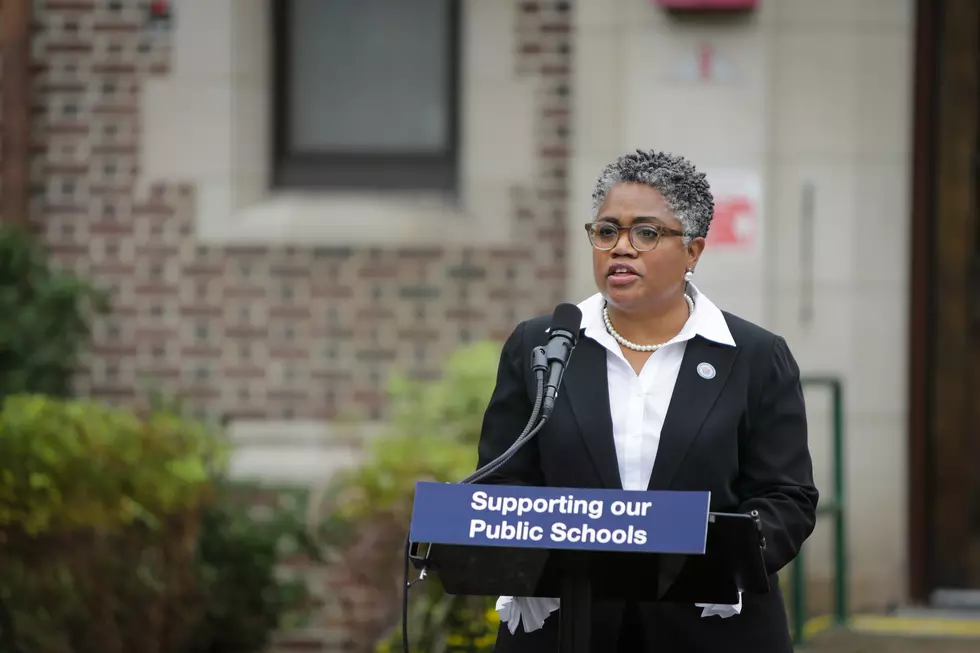
NJ Board of Ed refuses, for now, to advance new graduation rules
Rebuffing the Murphy administration, at least temporarily, the State Board of Education declined Wednesday to give its initial green light to changes in the state’s graduation requirements.
A disagreement about eliminating math assessments for 10th graders was the chief sticking point. The board decided it would schedule a special meeting, probably in two weeks, in order to meet the early November deadline at which current, temporary regulations will otherwise expire.
Education Commissioner Lamont Repollet and other department officials unsuccessfully pushed the board to approve the proposal Wednesday, saying it marked a consensus among various interested groups, none of which found it to be their ideal.
“This is one step in our transition and is a compromise, but it’s the best approach to avoid over-testing in high school, while still providing schools with years of continuous assessment data. And, of utmost importance, it gives parents and students a sense of stability moving forward,” he said.
Repollet said if the regulations expire, the next attempt might be something even further from what some board members prefer.
“If it sunsets, you may not like the consequences of what’s going to happen next,” Repollet said. “Because the Department of Education, we’re going to assess exactly where we are with regards to the state statute and federal requirements. We may not bring changes to the proposal to this board because we may feel that that proposal may be a little closer to what our governor and what the stakeholders and what the people of New Jersey are talking about.”
“This proposal complies with our state law,” said Deputy Assistant Commissioner Diana Pasculli. “It reflects our stakeholders and their understanding of the political, legal and logistical realities that are in front of us. It also provides the clearest path possible at this time for our 9th, 8th and 7th graders.”
Board member Andrew Mulvihill said he wanted to stick with six high school assessments when the board agreed to reduce them to four a year ago. Now it would go to three, he said, and set the bar at too low an expectation at Algebra 1.
“Reinventing High School, the Corzine report, recommended that algebra 2 be the requirement for graduating from high school because that’s what you needed to be successful in college,” Mulvihill said.
Board President Kathy Goldenberg said results of the geometry assessments from the last few shows have shown 68% of students are failing geometry and that by not doing tests in 9th and 10th grades, the state doesn’t know which communities need more help.
“If a child takes a test that doesn’t harm them, doesn’t harm the teacher, doesn’t harm the district but gives us a view to find where we can and should provide support, we are protecting children,” Goldenberg said.
Board member Arcelio Aponte said the state will miss “a critical data point” in determining if students are college- or career-ready if standardized assessments in Algebra 2 or geometry aren’t given to 10th graders.
“We may be missing a great opportunity to do something bold for 10th graders, and bold in terms of a commitment to ensuring that we succeed in the governor’s goals for STEM fields,” Aponte said.
Assistant Commissioner Linda Eno said the lack of a state geometry assessment isn’t going to stand between a student and success after high school.
“Despite all the promises, we don’t have agreement that our state assessments open doors, even at our community colleges. We don’t have agreements from our employers that our state assessments open a door to a job or that if you pass these tests, you get preferential treatment in the interview process,” Eno said.
“These tests don't have the promise or have not fulfilled on the promise that we thought we would when we started down this path about six years ago,” she said.
Board member Sylvia Sylvia-Cioffi said “I like the idea of bold” but noted that just because the state doesn’t give an assessment doesn’t mean students aren’t being tested on geometry locally.
“If we ask nicely, maybe we can get that information from the schools where it’s happening without disrupting another day, another week of their learning,” Sylvia-Cioffi said.
The board was initially told it had to act Wednesday because the current regulations expire Nov. 5. That’s a state holiday, though, for Election Day, and it was later confirmed that pushes the deadline to Nov. 6, which is the board’s next regular meeting date.
However, the regulations would have to be submitted for publication in the New Jersey Register by noon that day – a tight deadline that would be difficult if not impossible to meet, particularly if any changes are made before the proposal is approved, requiring it to be even slightly rewritten.
The vote that was delayed would merely publish the proposal. Its final approval couldn't take place after a months-long process that would probably take until mid- to late winter.
New Jersey: Decoded cuts through the cruft and gets to what matters in New Jersey news and politics. Follow on Facebook and Twitter.
Michael Symons is State House bureau chief for New Jersey 101.5 and the editor of New Jersey: Decoded. Follow @NJDecoded on Twitter and Facebook. Contact him at michael.symons@townsquaremedia.com
More From 92.7 WOBM










